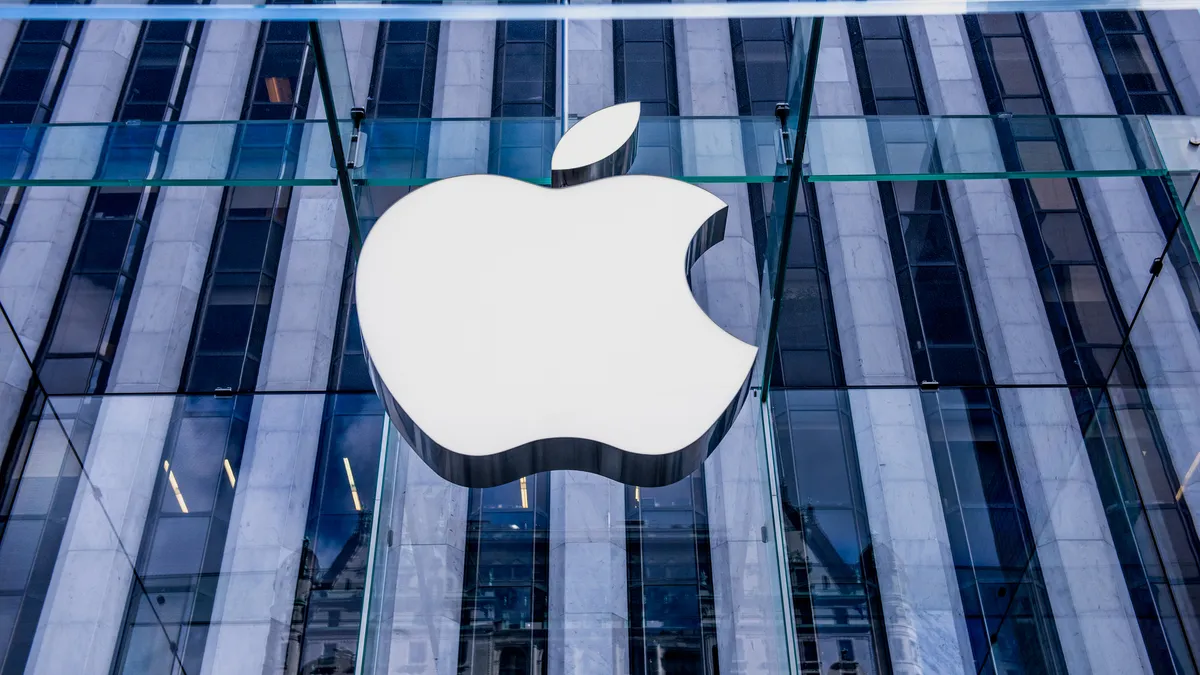Dive Brief:
- Apple announced on Thursday it will allow more large and small repair shops to make "the most common" out-of-warranty iPhone repairs using the same authentic parts, tools, training, repair manuals and diagnostics as its Apple Authorized Service Providers (AASPs), according to a company press release. The program, which aims to give consumers more options for repairing their goods, will be introduced in the U.S. and expand to other countries in the future.
- The program, which is free for businesses to join, requires repair shops to have an Apple-certified technician who can perform the repairs. Obtaining certification is free of charge, and qualifying repair businesses can procure Apple parts, tools, training, repair manuals and diagnostics at the same cost as AASPs.
- During the past year, Apple launched a pilot program with 20 independent repair businesses in North America, Europe and Asia that are now offering genuine parts for repairs. The company's announcement comes after Apple's recent expansion of its authorized service network into every Best Buy store in the U.S.
Dive Insight:
Apple's decision to allow more repair shops to service its devices comes shortly after the tech company announced its nationwide partnership with Best Buy in June.
Apple's decision to allow more third-party repair shops to fix its products comes after criticism from consumers and "right-to-repair" activists over the company's previous policy of encouraging customers to seek repairs only from authorized service providers or the company's own technicians. Apple was previously opposed to allowing independent repair companies to fix its devices, and it has also admitted to using software to slow down its older devices.
The move comes as advocates and politicians, including presidential hopefuls Elizabeth Warren and Bernie Sanders, bring awareness to the need for consumer repair options. Apple's expansion of its repair program appears to be an attempt to serve consumers while maintaining the integrity of its repair processes, but it also means that Best Buy – and now other businesses as well – have another reason to get consumers through the front door. Service offerings have been a key part of Best Buy's appeal, and partnering with a large device provider like Apple increases the number of consumers it's able to serve.
"To better meet our customers' needs, we're making it easier for independent providers across the U.S. to tap into the same resources as our Apple Authorized Service Provider network," Jeff Williams, Apple's chief operating officer, said in a company statement. "When a repair is needed, a customer should have confidence the repair is done right. We believe the safest and most reliable repair is one handled by a trained technician using genuine parts that have been properly engineered and rigorously tested."
As of March 2019, 20 states – including Massachusetts, New York and Washington – had considered right-to-repair bills. The latest proposal, California Assembly Bill 1163, was pulled from consideration in May after sustained lobbying efforts from Apple representatives and industry trade groups.
As noted by advocates, repair legislation would ease not just consumers' financial burden, but the enormous environmental impact of e-waste – the fastest-growing waste stream in the world, as noted in a Jan. 2019 report by the Platform for Accelerating the Circular Economy. According to the 2017 Global E-waste Monitor, approximately 44.7 million metric tons of e-waste are produced globally each year – a number expected to increase by 3-5% annually.















